

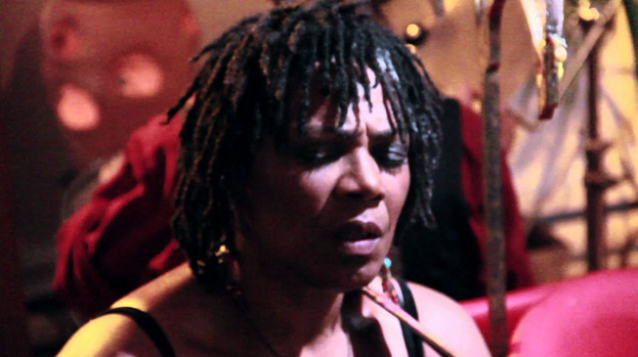
A great deal of time has passed since portions of the gaming community reacted to the Southern drawl of Letitia’s character in Deus Ex: Human Revolution. In 2011, plenty cited this character as an odd representation of people of color in games and the further problematic nature of how non-whites are portrayed in mainstream media. This isn’t entirely, why I have you here. It wasn’t until I watched Jamin Warren’s PBS Gameshow which reignited my interest in this character. Sure, we can bring up issues and discuss topics within pop-culture, but are we interested in making connections that open a larger dialogue? This is why I tracked down the voice actress who played Letitia. Her name is Amanda Strawn, and she’s spent over two decades within entertainment giving us her voice, and yet, still not having her voice heard.
Strawn is a Montreal resident and American born native, but her’s is a story that is often broadly painted and rarely sought out. What must it be like to be a black woman trying to make it in a business that so often pushes you to the background, or worse, out of the picture. To address the topic of Eidos Montreal’s portrayal of a black woman in the character Letitia, I showed Strawn the PBS Gameshow clip that asks if “videogames are racist.” Her response was eye-opening.
“I think this issue is deeper than it appears. It starts with 15% of the majority of races shown in video games.....WTF! But that is also, the reality of our society. Despite the white race being the actual 3rd world. We some how got it twisted.
"What is the difference between Medea and my blackness? I think the issue with Deus Ex, again I did not have a visual of the character I was playing. Possibly because the roles I played were not major. So the idea that there are characters for priority does not exist, AS if I were the main character who is allowed to develop this.
"It was much the same acting in movies. When you are not a lead character, or have more than 10 lines, It is not common for the actor to get the whole script only their lines.”

For clarification, Strawn played three roles of three different black women in Deus Ex: Human Revolution and Letitia was one character. The voice acting world, for a great deal of minorities is very competitive and very demanding. Since a great deal of the work is done without seeing the final product [the game] the actor/actress is literally lending their voice with the hopes that the finished work bears something that is cohesive.
Aside from the the very pertinent topics and discussions regarding Strawn’s performance in the game, the game was a critical success. However, one issue that was raised during the debate was the portrayal of black people in this game and specifically black women. Strawn’s deep and rich accent came off, to some, as a stereotype of how whites spent years casting Southern-sounding blacks in cinema. Strawn explains the clinical process of how she got the role.
“It is possible I got the role solely based on me being a Black American. Cause I am not aware of [other voice actors] with a Jamaican or Haitian accent but then again I am not into video games. Nor have I been sent a copy of Deus Ex: Human Revolution. Again the industry if you are not a lead you are just unimportant for a 'thank you for your time but we've decided on someone else.' Being left waiting for a call that never comes.”
And that’s really it. For Strawn this role was work that comes so sparingly, due to minorities in the world of entertainment being cast aside, in more ways than one. Strawn goes further explaining a black woman’s struggle in Quebec and the many ways skin color, within the black community, further divides and marginalizes.
“Over the length of my acting career here in Quebec, Canada [don't forget that part!]
"I am aware I have gotten roles because my skin was lighter. Have you noticed blacks in the media are getting lighter and lighter? Now they say it is because we fade in the darkness. WIth all the money spent on visual and digital this could have been resolved ages ago, if whites did not have the need for themselves to be portrayed as the majority when in fact they are the minority. Nothing against Caucasian people. My son is biracial, and I have always been attracted to those without colour. Am I a victim of my society! Hell yeah!"
A humorous and blunt delivery from Strawn. At this point in the interview the topic of Letitia and what she represented in the game of Deus Ex began feeling moot. Not that the discussions about the character weren’t any less valuable, but the idea that my fellow writers hadn’t done the hard work to ask the voice actress. To hear her story, and to realize that from the quote above that Amanda Strawn is very much a human being. A human being with flaws, beauty and struggle.
Strawn then dismantles the constructs of the current games industry, even without playing the game she is the current hot topic.
“My issue with video games is it is fantasy distorted to some strange connection with reality. Women’s roles in video games just have been replaced with flowing hair and breast! Again, I say WTF!
"I would like to see video games for women. I have a few ideas I'd like to shop around, that takes real life situation of survival. This value of entertainment lucrative it may be for some more than others. It is just a continuation of the fear of whites’ need to win at all cost, be it ethical, moral fair, real, honest or not. I think their real fear is distinction.
"Personally I was under the impression that the voice that seems to be under the stereotypical depiction of blackness was the voice of the homeless character.” Strawn explains.
This speaks volumes, because this is now Strawn critiquing Eidos Montreal's depiction of a marginalized character that she gave a voice to. Strawn’s voice is most important here given that the criticisms Deus Ex received came from many observers, but no participants in the game’s creation.
Strawn is very aware of the critics. Though the industry has been chastised for being a white, male-dominated perpetuator of bigoted behavior, Strawn also points her apt gaze to the journalist community. A community that is demographically similar looking to the industry they critique.

“I find your interest in my characters for this video game interesting to say the least. As I read a very bad review saying black people don't talk that way?! (Well, not here in Quebec, or Canada anyway). I find irony in more white folks trying to sound black to the point of a black woman playing the role of a an old black American woman...I was hurt by it. I am an African-American who has lived in Quebec now 28 years, and acted professionally for 25 years. WIth films, voice over, cartoon voices, children's theatre and yada yada, you can google my name. IMDb. One thing I am most definitely aware of is...shit is messed up.” says Strawn.
About a week passed until I began writing, editing and trying to fit words into something structured. I didn’t want Amanda Strawn’s words to be taken lightly. We’ve continued to exchange e-mails about her rich history and travel. Her perspective should be sought out, valued and told to future generations. I almost felt a bit guilty pestering her about my hangups on a videogame, but she more than obliged.
“So why pick on the "blackness” that one is commonly use to hearing? Because it is the blackness society has successfully deleted as suitable in the "White Man's World." Which many of us aspire to get along in. Simply because we are American's and conditioned by this shit ya dig?!
"Again. After the first character they called me in for, I could've made a better match as to who that lifeless character (Letitia) was and brought to life if these character's were of value to the story and the director's 'point of view.' My character was not that important. And that is where the industry fails actors. I was payed a full days wage for working, no more than, an hour and a half. I would've gladly stayed for eight hours to bring these characters to life. I think in retrospect they (Eidos Montreal) should have taken me deeper into the next role.”
The structure of mainstream entertainment isn’t built to cater to the needs of the many minorities they so often misportrayed in a variety of media. It puzzles me, even in the games industry, as to how so many positive strides can be taken and millions can be spent on a game that one person could help make better. A days wage and the potential of this conversation, the race-based arguments, they’d all fade. These arguments should be old by now. We’ve had them in every form and function of art, but the problem persist.
Strawn then turns the lens upon herself and upon her own blackness and how she’s viewed, how she … we, are categorized.
“Maybe I am a shitty actress. I can accept that. But I am a product of the American and Canadian perspective. Where my opinion doesn't really matter! The lightness of my skin, the lack of accent, the ability to sound 'ethnic' within the media's safe boundaries," explains Strawn.
"But now I see minorities are grouped into one. Overweight, of a different race, and unattractive.”
There are deviations from the mold, but they make up a long history of keeping the image of non-white characters and the people that voice them into, well, the darkness. Darkness has always been a defining characteristic in how we see places of fear, symbols of negativity and areas without hope. I’m hopelessly optimistic that the games industry, above all other medias, can buck this trend.
But it takes the rare talent of people like Amanda Strawn to remind us that we matter. The dark, the light and everything in between -- matters.
Amanda Strawn can be found with her band in Montreal Quebec playing in a dark lounge where, I’m sure, happy people are talking about her amazing voice. I can only hope she comes back and visits the games industry, but for now it looks like we’ll have to seek her out.
Amanda Strawn’s Youtube page: Here
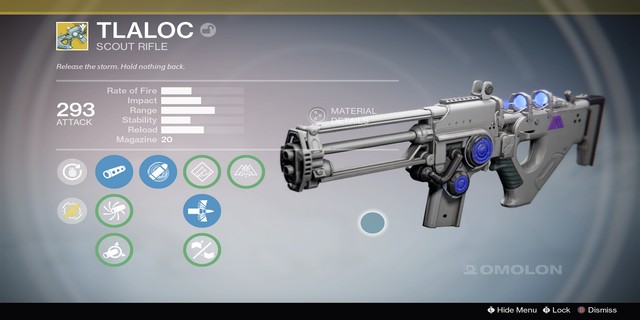
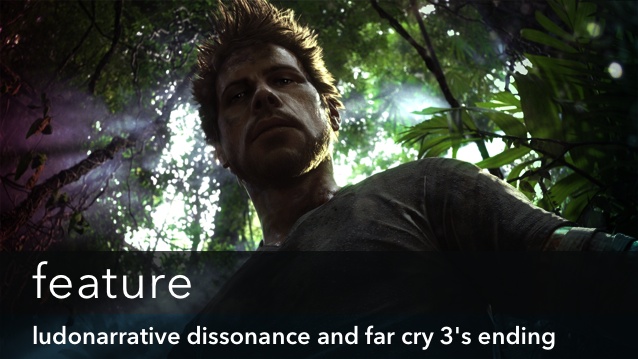
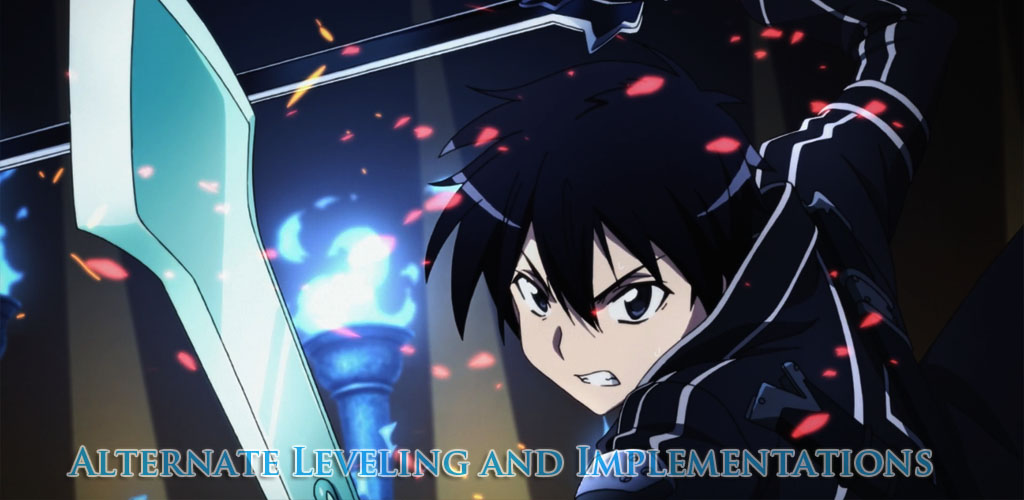

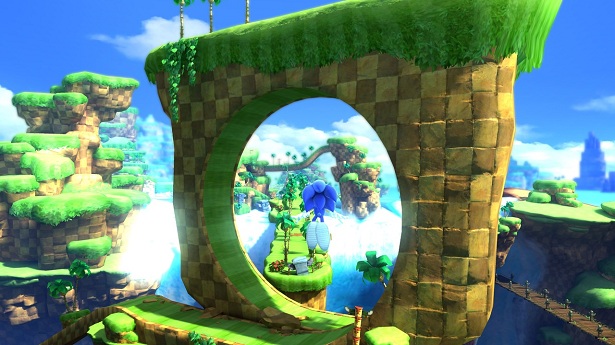 Sonic Generations Walkthrough
Sonic Generations Walkthrough Citizens of Earth Wiki – Everything you need to know about the game .
Citizens of Earth Wiki – Everything you need to know about the game . The Fire Crew Approach Setup
The Fire Crew Approach Setup Katy Perry will perform By the Grace of God at Grammys 2015
Katy Perry will perform By the Grace of God at Grammys 2015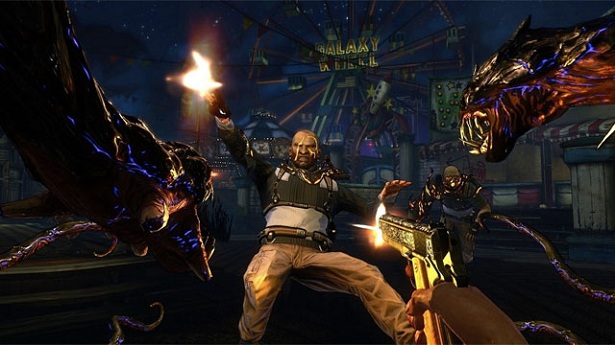 The Darkness 2 Walkthrough
The Darkness 2 Walkthrough